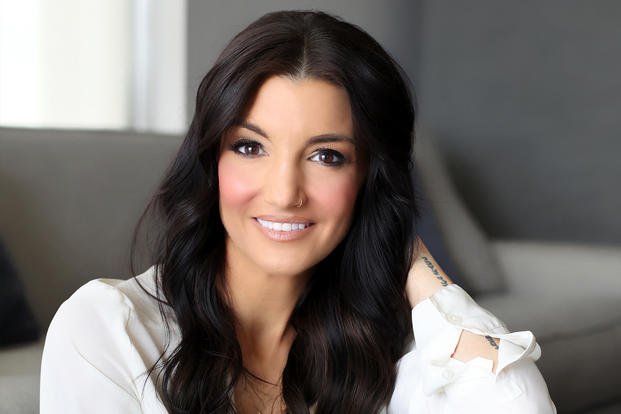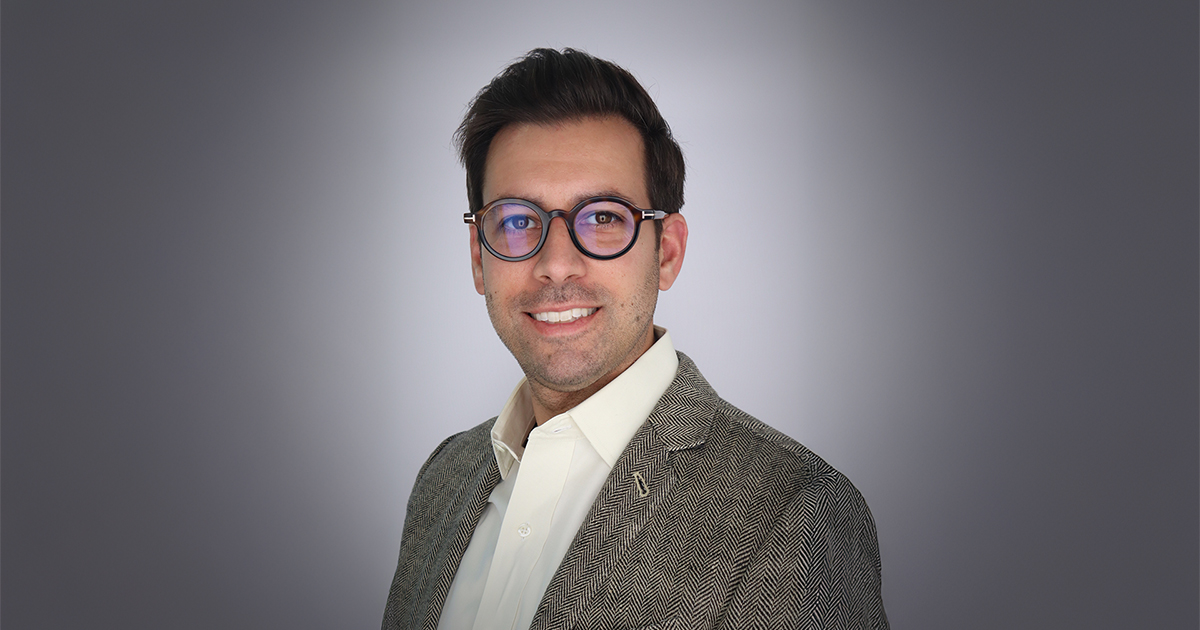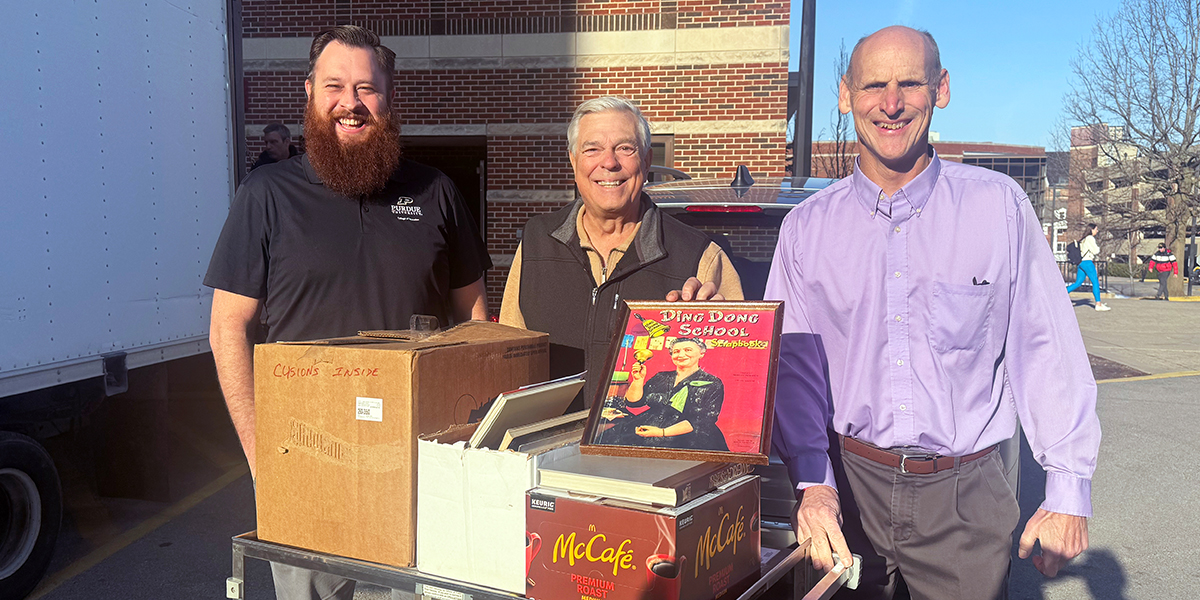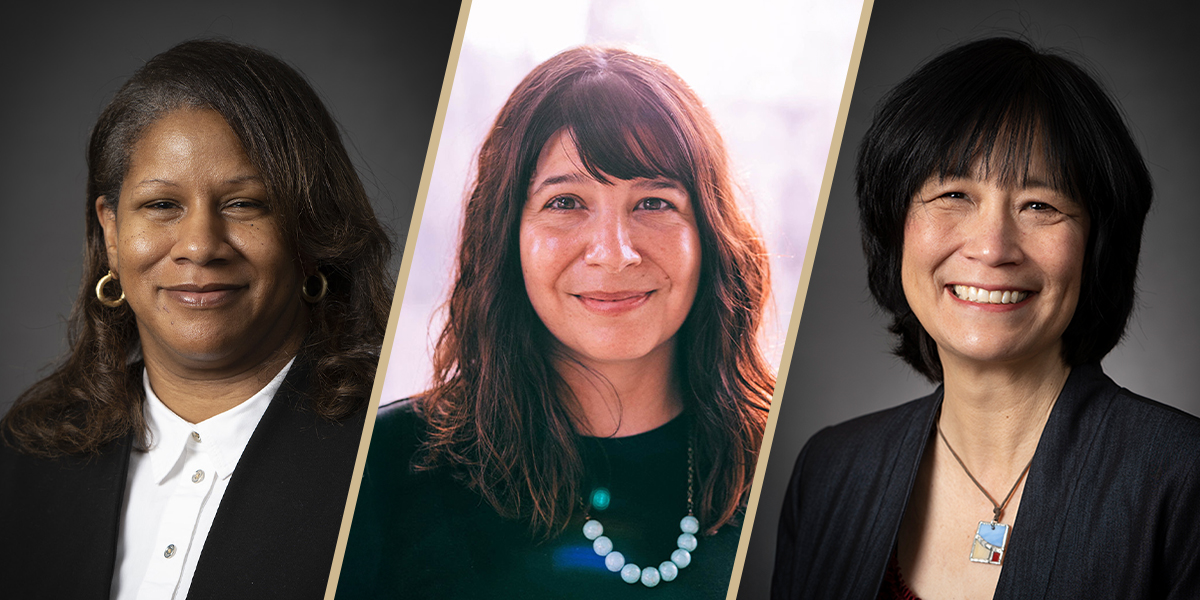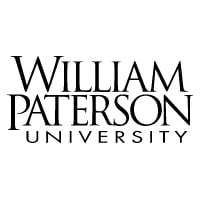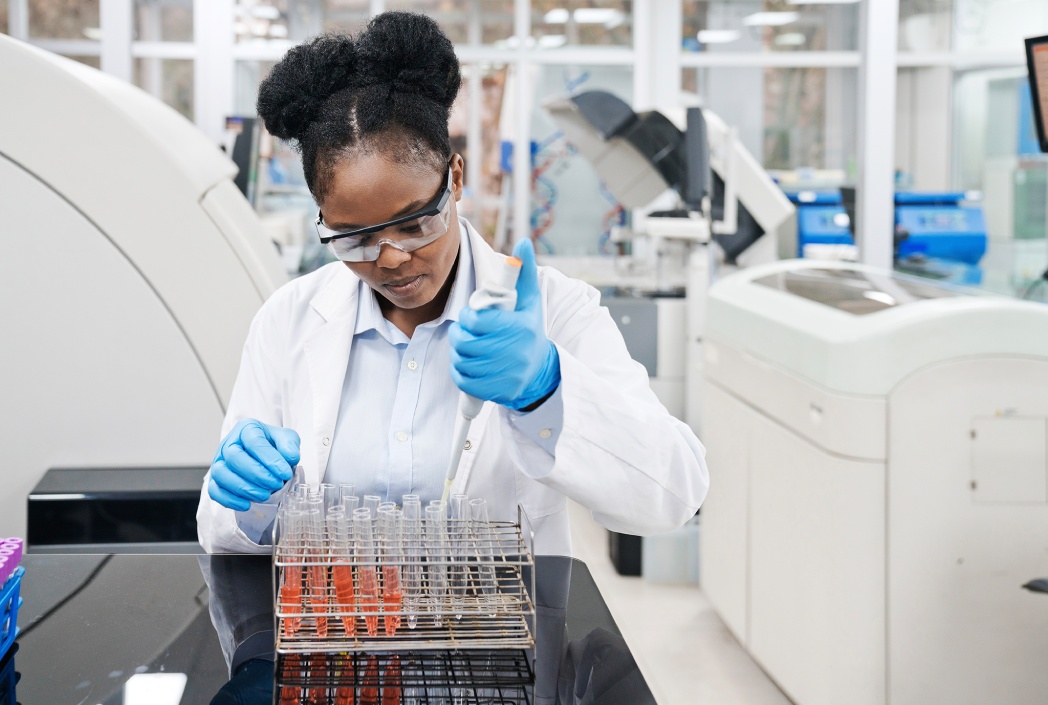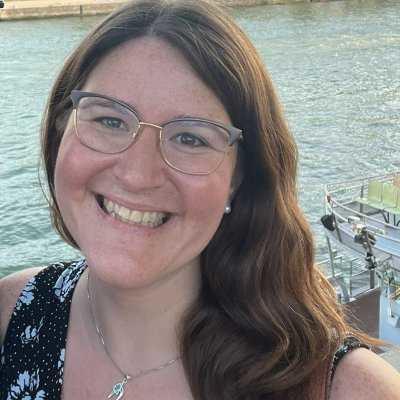Unconventional journeys: Online degrees take Oregon State grads from Hollywood to the sea and everywhere in between
8 minute readEditor’s note: This article was originally published in the Oregon Stater alumni magazine in April 2025. Four not-so-ordinary Beavers and why they chose to study online One in three Oregon State students now learns exclusively online through Ecampus. Spread across all 50 states and 60 countries, they’re drawn to OSU for many of the same ... Unconventional journeys: Online degrees take Oregon State grads from Hollywood to the sea and everywhere in between

Four not-so-ordinary Beavers and why they chose to study online
One in three Oregon State students now learns exclusively online through Ecampus. Spread across all 50 states and 60 countries, they’re drawn to OSU for many of the same reasons on-campus students are: to receive a high-quality education, learn from the university’s expert faculty and gain the skills they need to thrive professionally or pursue a passion.
And of course there’s the benefit that’s inherent to online education: the flexibility that allows students to earn a degree or credential while managing work and life obligations. As it turns out, that flexibility also comes in handy when students’ work takes them to unusual places — from Hollywood backlots to Major League Baseball fields.
The four alumni showcased here hail from a variety of places, and their successful careers have taken them to wide-ranging points on the map. But now that they’ve graduated, they all call OSU home.

Beau Mirchoff
The actor
As a teen actor, studying for school while on a film or TV set came with the territory for Beau Mirchoff. There are laws, after all, that help ensure young actors spend the necessary time on education. As an adult in show business, Mirchoff, ’24, still loves to learn. But while he was pursuing his OSU bachelor’s degree online, the motivation to study had to come entirely from within.
Even when the glaciers came calling.
Mirchoff was filming a movie in Iceland during his final quarter online with OSU when he was faced with a decision: Go on a weekend adventure with the rest of the film’s cast to explore glaciers and see wildlife. Or stay behind to complete a physics lab as part of his environmental sciences major coursework. He chose the responsible route and turned an Icelandic inn into his makeshift classroom. “I constructed a series of pendulums in the hotel hallways and watched other hotel guests sneak by my labyrinth with confused faces,” Mirchoff said via email.
But he was quick to point out that this wasn’t a chore. Far from it. Earning a science-based degree online enabled him to indulge his love of the environment, even when it meant sacrificing downtime and excursions.
“I genuinely enjoyed what I was learning, so spending my lunch reading or studying instead of napping in between scenes was fine,” he said. “I also had a strong mindset and knew I was going to finish, so I just did what I had to do.”
Mirchoff booked his first role in 2003 when he was 14. Now he has nearly 50 acting credits to his name, including on Netflix’s Narcos: Mexico, MTV’s Awkward, ABC’s Desperate Housewives and numerous major theatrical releases. The movie he filmed in Iceland, “The Finnish Line,” premiered last December on the Hallmark Channel. That type of busy schedule — the travel, the odd hours on set — doesn’t easily lend itself to the rigors of being a college student. Mirchoff, however, shined in the role, as do many working professionals who enroll with Ecampus.
More than two decades into his career, he shows no signs of slowing down. Nonetheless, the Canadian actor wants to be prepared as the entertainment industry begins wrestling with technological advancements.
“Acting is great, but I enjoy other things as well. A backup plan sounded smart because who knows if acting will be a sustainable income source when the AI overlords take over,” he said, half-jokingly. “I would also like to help the planet in some way, so attaining knowledge and not being a fool sounded appropriate.”

Jane Vinesky
The globe-trotting ecologist
Jane Vinesky’s cell phone was buzzing. She looked at the screen.
“OMG.”
It was a message from a friend and colleague.
Hours earlier, Vinesky, ’22 — a marine ecologist and conservationist — was teaching dozens of young children about giant manta rays, the majestic sea creatures with wingspans that can stretch more than 20 feet.
“We went to the aquarium after lunch,” said the message from her friend, the youth coordinator. “Some of the kids went to the gift shop. Many manta ray stuffed animals were purchased!”
A smile beamed across Vinesky’s face, and soon it gave way to tears — the kind that trickle when you realize that, truly, your work is making a positive difference.
Vinesky works in the ocean, the lab and everywhere in between to help save endangered rays and sharks. An Ohio native, she was drawn to OSU because of its expertise in fisheries, wildlife and conservation sciences. She has traveled the globe to contribute to the cause — before, after and while earning a bachelor’s degree online.
Swimming with giant mantas is thrilling. The hard science is challenging. But educating children and others might be Vinesky’s sweet spot — and it could be how she makes the biggest impact.
“As scientists, we talk a lot about the biodiversity crisis, but less about the science communication crisis,” she said. “Scientific literature is, by design, challenging to digest. This creates barriers between scientific research and the general public that are crucial to break.”
This is the impetus behind The Mantaverse, an educational, immersive digital platform Vinesky is creating to help increase ocean literacy and establish ecological baselines for a potential new species of manta ray in the Mexican Caribbean.
Endorsed by the United Nations, The Mantaverse will consist of artistic, interactive virtual exhibits that allow users to engage with science in hands-on ways. It will teach people, for example, that mantas live long lives and form complex social relationships. Users will also catch glimpses of their awe-inspiring presence.
“Imagine an underwater kite, except the kite has a 15-foot wingspan and is staring at you,” said Vinesky, a former Fulbright Scholar who just earned her master’s degree at El Instituto Politécnico Nacional in Mexico.
The timing is critical. Giant mantas are at serious risk of becoming extinct in the wild. They are the first species of manta to be listed as endangered by the International Union for Conservation of Nature. Their biggest threat: commercial fishing.
“More people caring about mantas is the only way we can enact the change necessary to save them,” Vinesky said.
And saving them, as she learned, just might start with stuffed animals in the gift shop.

Daniel Robertson
The aspiring major league coach
When Daniel Robertson talks about his goal to someday manage a Major League Baseball team, he doesn’t bother with “if” statements or hypotheticals.
“By the time I’m a major league manager,” he said, “I feel like the game is going to recognize that I’ve been working hard.”
Robertson, ’20, does not say these words arrogantly. He says them with the conviction of someone whose grit guided him to the peak of professional baseball as a player and who is now, a decade later, on the doorstep of a big-league coaching job. He’s currently the bench coach for the Columbus Clippers, the Triple-A affiliate of MLB’s Cleveland Guardians, one level below the majors. There is no linear path to becoming an MLB manager, and any potential opportunity could be years away, if ever.
Until then, Robertson will visualize himself in the role and prepare for everything — the good and the stressful.
“Coaching professional sports, the demand to win is so high. It can be daunting, but I welcome it,” said Robertson, a native of southern California who played for OSU and learned on campus in 2008. “I want to be in the most high-pressure situations because I know it’s going to test my patience. And when you’re patient, you can really help a lot of people.”
Helping is a coach’s job, after all. Robertson excels at it. After playing for the Texas Rangers, Los Angeles Angels, Seattle Mariners and Guardians from 2014 to 2017 — all while working toward his liberal studies degree online — he has worked his way up Cleveland’s organizational ladder and identified his favorite type of player to work with.
“I enjoy coaching those that other people have given up on,” he said. “Older people like to say the younger generation needs instant gratification. I don’t think that’s the case at all. All they needed to do was learn how to work.”
It makes sense that Robertson would devote special attention to overlooked players. As a 33rd-round draft pick himself, the odds were stacked against him in his playing days. Despite this, he grinded out a memorable pro career through relentless hard work. That wasn’t the only thing working in his favor, though. Along the way, his managers rallied behind him.
“I was a good player, but it took a person to stand on the ledge and say that I was the one that was going to help us win,” Robertson said. “I want to be that type of manager too.”
Stay tuned.

Heather Bell
The international energy expert
Spend a little time speaking with Heather Bell, M.S. ’20, and you’ll inevitably feel grateful that someone with her skills and intelligence is in the high-stakes position she’s in. As the director and energy attaché for the U.S. Department of Energy at the U.S. Embassy in London, she’s the expert government leaders turn to when they need answers. If, for example, radiation is detected over Europe, Bell can communicate the implications for U.S. citizens living abroad.
She also leads diplomacy efforts to bridge the gap between domestic energy policy and international cooperation. And she’s perfect for the role: well-versed, eager to learn, highly capable and plugged in.
Those traits have defined her career in nuclear energy and nonproliferation, with additional jobs held in Washington, D.C.; Kyiv, Ukraine; Beijing; and Moscow. At all four posts, she displayed an ability to collaborate and build trust with the host countries. The other common denominator? Oregon State was with her at every stop.
“I can’t overstate how much OSU’s faculty expertise and dedication to students has helped me not only to complete my studies from four different countries, but to better do my job by having the answers to questions that accompany major events — especially ones that have radiation safety implications,” said Bell, who earned a radiation health physics master’s degree online.
“It has helped me know what data is needed to assess the situation while also understanding the fear that underlies people’s reactions to radiation release incidents.”
Raised in Pennsylvania, Bell had a well-established career when she enrolled online with OSU. She wasn’t contemporaries with her faculty members, per se, but they were in the same field. In fact, she met her faculty advisor — Distinguished Professor Kathryn Higley, an international expert on radiation detection and protection — for the first time in person at the DOE headquarters in Washington, D.C., because they were both there on business.
And it’s serious business.
“As increased numbers of people and goods cross borders, the ability to detect smuggling and detect the movement of nuclear radioactive materials — and also to understand where that material should be housed and who has responsibility for it — is going to increasingly be an issue as we work towards global nuclear security,” Bell said.
That’s where her expertise factors in, working with other countries each day to find common ground.
“We all are doing our best to make a difference,” she said. “I’ve loved experiencing the underlying humanity behind all the headlines in every country I’ve been in.”
What's Your Reaction?









